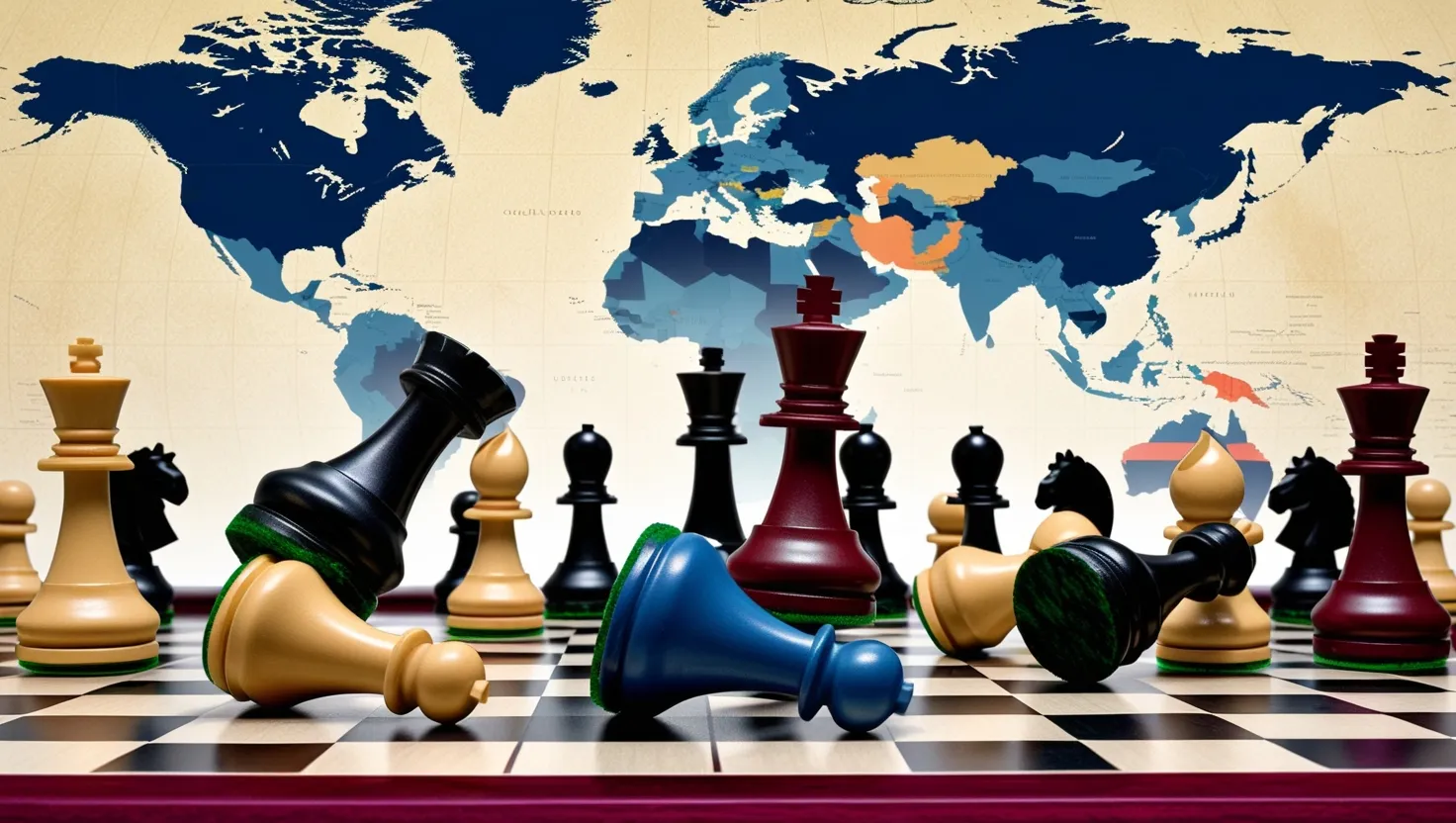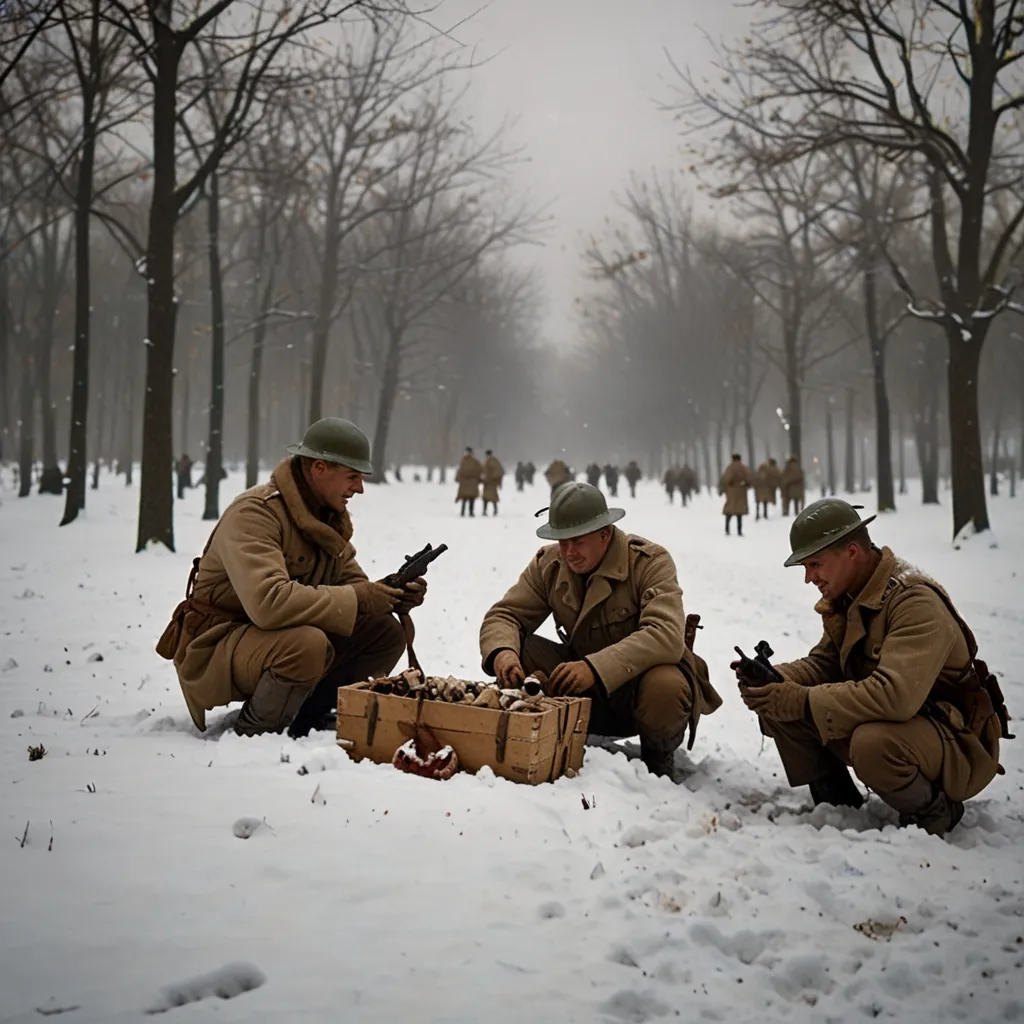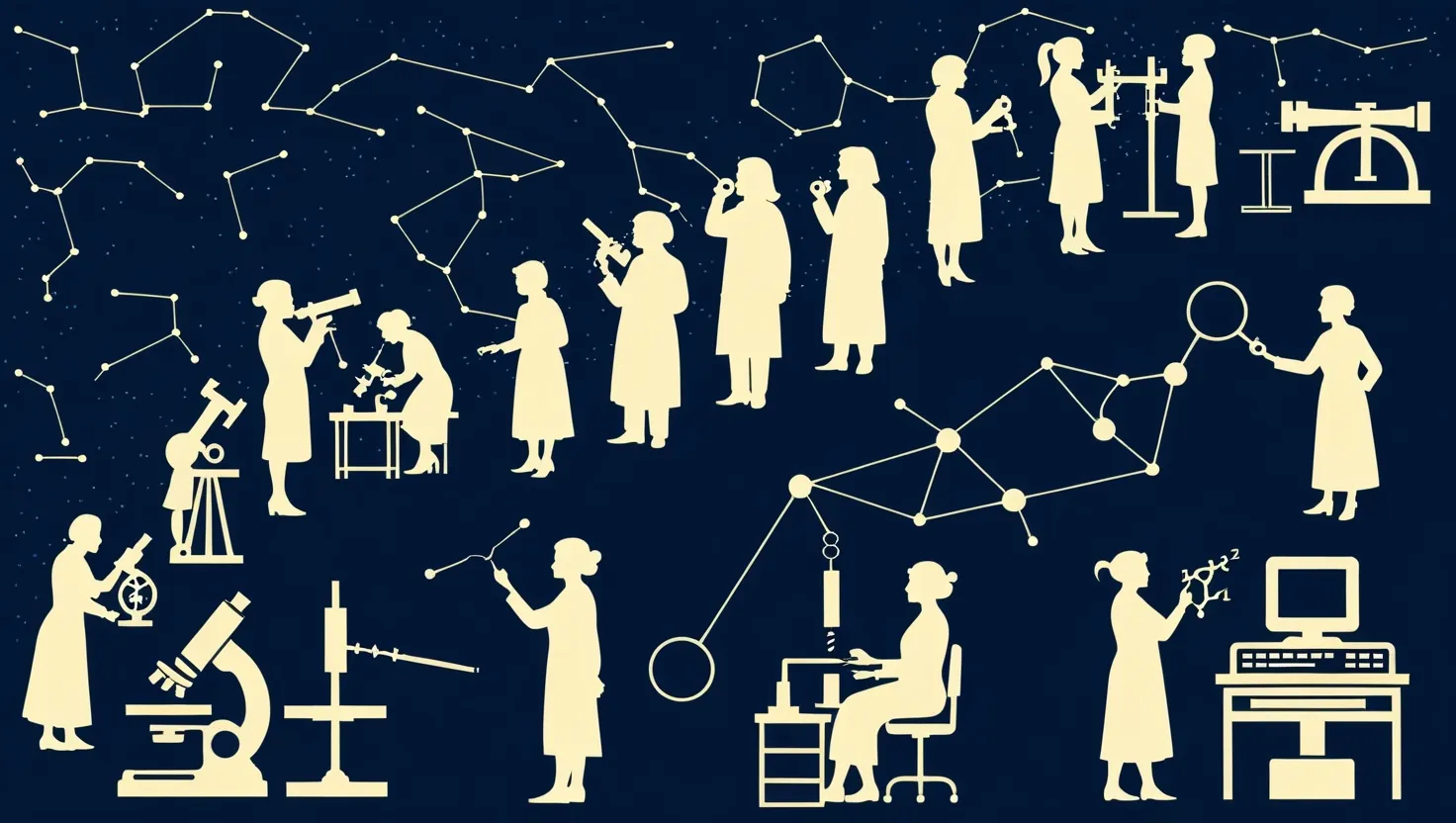In the intricate dance of international diplomacy, even the most well-intentioned moves can have catastrophic consequences. The history of global relations is peppered with diplomatic blunders that have altered the course of human events in profound ways. Let’s delve into five such instances, where the decisions made by world leaders had far-reaching and often devastating effects.
The Congress of Vienna: A Fragmented Germany
In the aftermath of the Napoleonic Wars, the Congress of Vienna gathered in 1814-1815 to redefine the European map. This grand assembly of monarchs and rulers, orchestrated by the cunning Austrian Chancellor Klemens Wenzel Lothar von Metternich, aimed to restore a balance of power and ensure a long period of peace. However, their treatment of Germany would sow the seeds of future turmoil.
The Congress created the German Confederation, a loose alliance of German states under Austrian leadership. While this seemed like a pragmatic solution at the time, it left Germany fragmented and vulnerable to nationalist sentiments. As the years passed, this fragmentation would fuel the rise of Prussian dominance and eventually contribute to the outbreak of both World Wars.
”The great questions of the day will not be settled by means of speeches and majority decisions…” - Otto von Bismarck
This quote from Bismarck, the Iron Chancellor, hints at the underlying tensions that diplomatic maneuvers often fail to address. The Congress of Vienna’s decisions, though well-intentioned, ignored the aspirations and identities of the people they affected, setting a precedent for future diplomatic oversights.
The Treaty of Versailles: Seeds of Resentment
Fast forward to the end of World War I, and we find another pivotal moment in diplomatic history – the Treaty of Versailles. Signed in 1919, this treaty imposed harsh penalties on Germany, forcing the nation to accept responsibility for the war and its damages. The “War Guilt Clause” and the hefty reparations demanded from Germany created a climate of resentment that would prove fertile ground for the rise of Adolf Hitler.
Hitler exploited these grievances, painting the German government as traitors who had betrayed the nation by signing the treaty. His rhetoric of betrayal and the need for revenge resonated deeply with a population struggling economically and emotionally. The Treaty of Versailles, meant to punish and deter future aggression, inadvertently paved the way for the Second World War.
”The Treaty of Versailles was not a treaty of peace, but a treaty of war.” - David Lloyd George
Lloyd George’s words reflect the widespread criticism of the treaty’s draconian terms. The treaty’s failure to address the economic and social woes of post-war Germany and its one-sided blame on the German nation created a volatile situation that would eventually boil over.
The Munich Agreement: Appeasement and Emboldenment
In 1938, the world witnessed another diplomatic blunder with the Munich Agreement. This pact, signed by Britain, France, Italy, and Germany, allowed Nazi Germany to annex the Sudetenland in Czechoslovakia without facing opposition. The agreement was hailed as a victory for peace, but it was nothing more than a temporary reprieve.
By appeasing Hitler, the Western powers inadvertently emboldened him. The lack of resistance to his aggressive expansionism convinced Hitler that the Allies were weak and unwilling to stand up to him. This emboldenment led directly to the invasion of Poland in 1939, which marked the beginning of World War II.
”An appeaser is one who feeds a crocodile, hoping it will eat him last.” - Winston Churchill
Churchill’s biting remark captures the essence of the Munich Agreement’s failure. The policy of appeasement, though intended to avoid conflict, ultimately fed the beast of Nazi aggression, leading to one of the most devastating wars in human history.
The Yalta Conference: Dividing Europe
As World War II drew to a close, the Yalta Conference in 1945 brought together the leaders of the three main Allied powers – the United States, the United Kingdom, and the Soviet Union. The conference aimed to shape the post-war world, but its decisions would have far-reaching and divisive consequences.
The division of Europe into spheres of influence, with the Soviet Union dominating Eastern Europe and the West controlling Western Europe, set the stage for the Cold War. This bipolar world order would shape global politics for decades, leading to proxy wars, espionage, and a perpetual state of tension between the two superpowers.
”The world is a very serious and a very sad place, but at the same time it has a lot of humor.” - Yul Brynner
While Brynner’s quote may seem out of place in this context, it highlights the complex and often contradictory nature of international relations. The Yalta Conference, like many other diplomatic endeavors, was a mix of serious intentions and unintended consequences.
U.S. Support for the Shah of Iran: A Legacy of Anti-American Sentiment
In 1953, the United States and the United Kingdom orchestrated a coup in Iran, overthrowing the democratically elected government of Prime Minister Mohammad Mosaddegh and reinstating the Shah. This move was motivated by a desire to secure oil interests and prevent the spread of communism.
However, the coup had long-lasting repercussions. It created widespread anti-American sentiment in Iran and the broader Middle East. The Shah’s regime, though stable for a time, was marked by repression and corruption, eventually leading to the Iranian Revolution in 1979. This revolution not only toppled the Shah but also established an Islamic republic that has been a thorn in the side of U.S. foreign policy ever since.
”The greatest glory in living lies not in never falling, but in rising every time we fall.” - Nelson Mandela
Mandela’s words of resilience are particularly relevant when considering the aftermath of diplomatic blunders. The U.S. support for the Shah of Iran is a stark reminder that even well-intentioned actions can have lasting negative consequences, and it is how we learn from these mistakes that truly matters.
Reflections and Lessons
These diplomatic blunders serve as stark reminders of the complexities and challenges of international relations. They highlight the importance of foresight, empathy, and a deep understanding of the cultures and histories involved.
As we navigate the intricate web of global politics today, it is crucial to learn from these past mistakes. We must strive for diplomacy that is not just about short-term gains but also considers the long-term consequences and the well-being of all parties involved.
In the end, diplomacy is not just about signing treaties or making deals; it is about building relationships, understanding perspectives, and creating a world where peace and prosperity are not just ideals but realities. As we move forward, let us remember the lessons of history and strive to do better, for the sake of a more harmonious and peaceful world.






